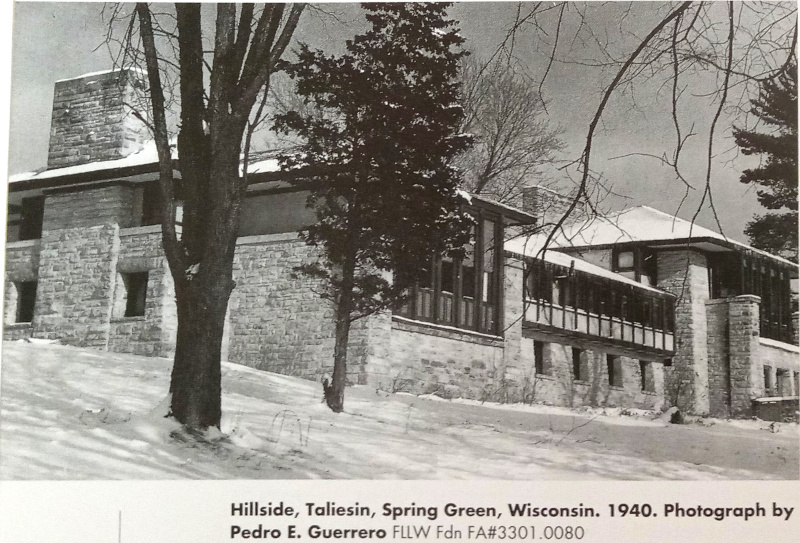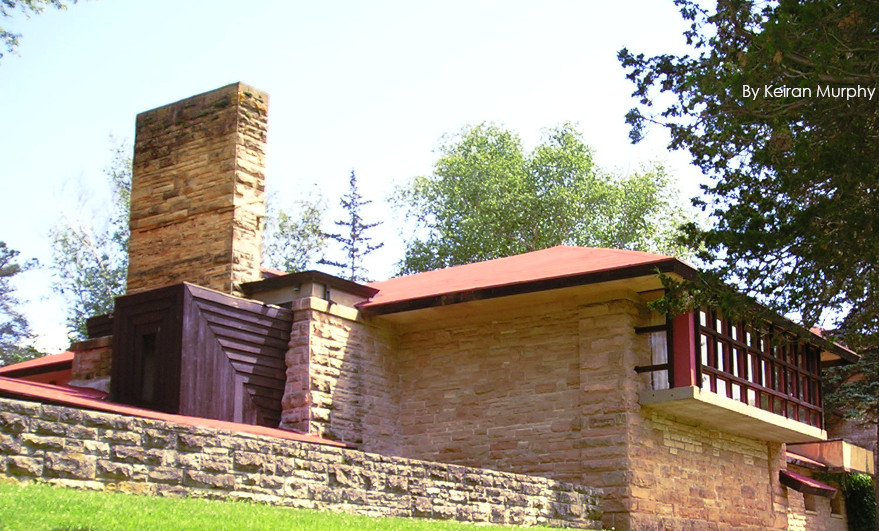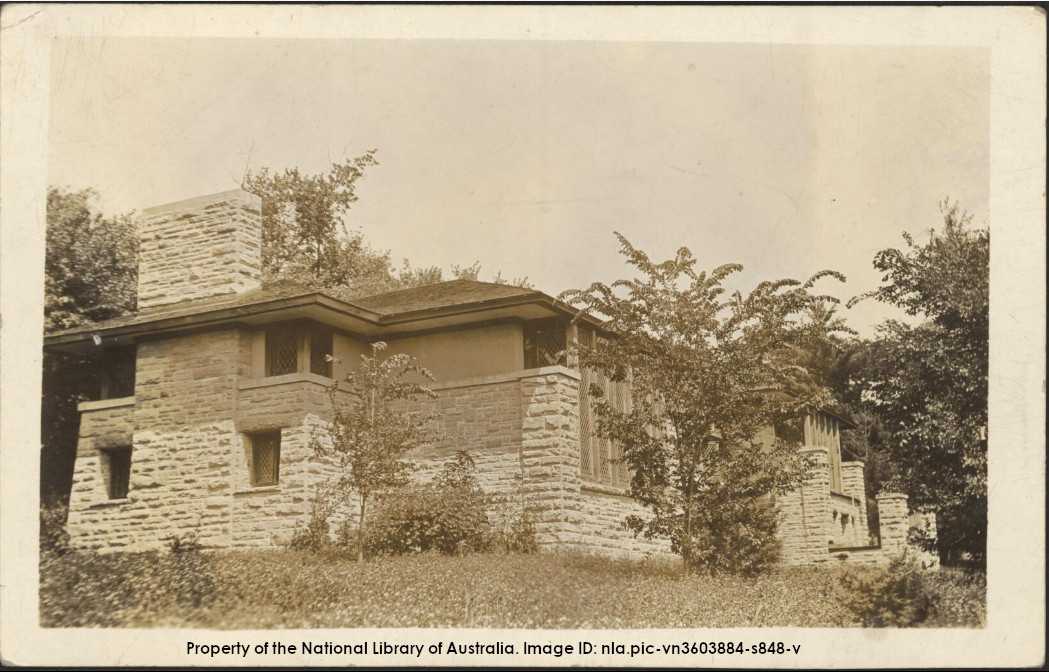A photograph looking northeast at Hillside. You can see the south wall of his theater with the glass, and a wooden structure over the back steps to the Hillside sound and projection booth, and the Hillside chimney with signs of fire on the chimney stack.
In my last post on November 3 I talked about fire remnants that people can see on tours of the Taliesin estate.
After that, researcher Greg Brewer1 reminded me that, D’UH, there’s a big reminder of Hillside’s 1952 fire that anyone can see if they take a tour.
btw: the “D’UH” didn’t come from him. It’s my own internal dialog. Most people who know me have probably heard “d’uh” come out of my mouth multiple times a day; it’s a reaction to the realization that whatever I had concluded was wrong and/or hilariously incomplete.
Why . . . ?
did I gravitate to the more difficult thing to see at Hillside in that post?
My mind goes for the stuff that’s unusual to me.
The Theater chimney is so average to me that it didn’t jump out in my memory.
See? I’m too smart for my own good sometimes.
So what I’ll write about this post is what Greg Brewer remind me of: what anyone can see outside of the Hillside Theater.
It’s a ghost left over from the 1952 fire, on the outside of the Hillside theater chimney.
You can see this ghost in the photo at the top of this page and when you take a Taliesin Estate tour or the Highlights Tour.
Here’s a pre-fire photo:
You can see the roof of the theater in the c.1920 photo below from the National Library of Australia:
National Library of Australia—Eric Milton Nicholls Collection
When you click on the photo, the date from the library says “1903”, but that’s because they’re going on the date that Wright’s Hillside building was initially constructed. The photo was taken by former draftsmen for Wright (Marion Mahoney Griffen and Walter Burley Griffen) when they visited the U.S.
Then in 1940, Pedro Guerrero took a photo of that part of the building and you can again see the roof at the chimney before the fire of 1952:

This photograph was published in the book, Frank Lloyd Wright: Collected Writings, volume 4, 1939-49. Ed. Bruce Brooks Pfeiffer.
The fire happened in April 1952. The Taliesin Fellowship apprentices cleaned up the site that summer and began building the theater that stands in its place.
A sign of Wright’s control
Of course the Old Man had control of everything that happened during the Hillside reconstruction.
That’s why
the Hillside Theater chimney still includes the signs of the fire.
We know about Wright’s control over this because of former apprentice Jim Pfefferkorn (1922-2016). He wrote a remembrance about the work he did at the Hillside Theater.
In particular, Wright directed Pfefferkorn to build the wooden box off over the stairs up to the lighting booth.
You can see that box in the photo at the top of this page.
Wright visited the work a lot. While Pfefferkorn was building the box, he asked Wright if they should lower the chimney, since it now looked bigger in relation to the building.
Pfefferkorn said that Wright looked at the chimney/roof for awhile, then decided it should stay as it was.
That’s another example
Of Wright’s control over the different places at the Taliesin estate.
First published November 12, 2023.
I took the photograph at the top of this post in 2009.
Note:
1. Thank you, Greg for reminding me of this detail of the chimney.
Brewer presented at the 2022 conference of the Frank Lloyd Wright Building Conservancy and wrote about Frank Lloyd Wright’s Roloson Houses and unbuilt Roloson Apartments in the Journal of Organic Architecture + Design, Vol. 8, No. 1.


